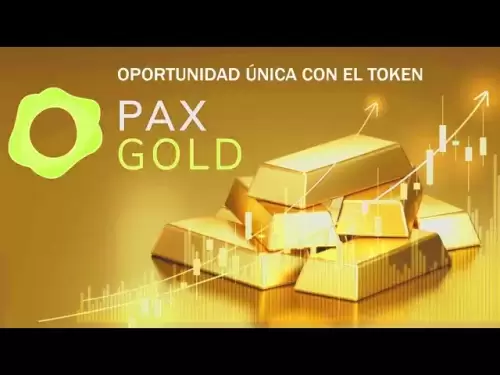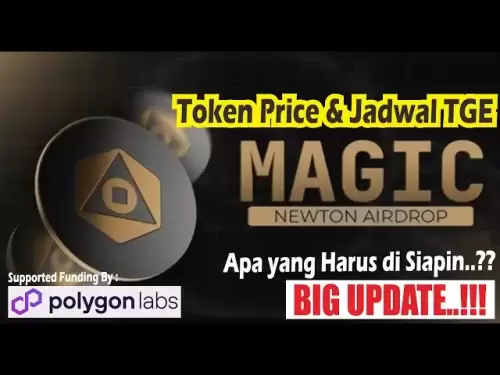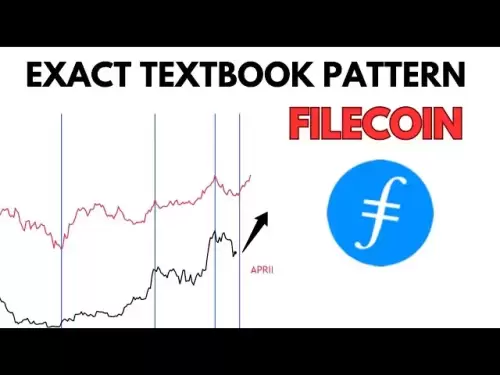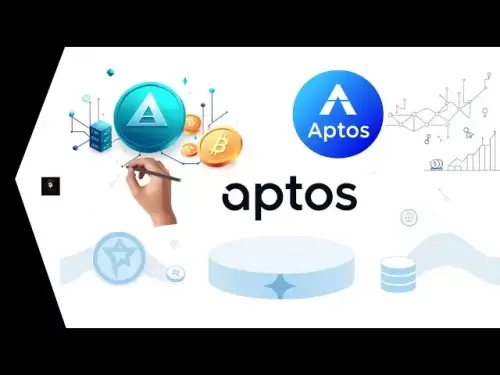-
 Bitcoin
Bitcoin $99,594.2189
-3.59% -
 Ethereum
Ethereum $2,188.5793
-9.00% -
 Tether USDt
Tether USDt $1.0001
-0.02% -
 XRP
XRP $1.9745
-5.82% -
 BNB
BNB $608.9511
-3.73% -
 Solana
Solana $130.4575
-5.93% -
 USDC
USDC $1.0000
0.01% -
 TRON
TRON $0.2637
-3.59% -
 Dogecoin
Dogecoin $0.1493
-5.97% -
 Cardano
Cardano $0.5322
-6.72% -
 Hyperliquid
Hyperliquid $33.9044
3.33% -
 Bitcoin Cash
Bitcoin Cash $449.6411
-5.46% -
 UNUS SED LEO
UNUS SED LEO $8.9629
0.43% -
 Sui
Sui $2.3943
-8.35% -
 Chainlink
Chainlink $11.4402
-7.83% -
 Stellar
Stellar $0.2241
-6.49% -
 Avalanche
Avalanche $16.1489
-4.24% -
 Toncoin
Toncoin $2.7182
-5.94% -
 Shiba Inu
Shiba Inu $0.0...01040
-5.72% -
 Litecoin
Litecoin $78.7882
-4.07% -
 Ethena USDe
Ethena USDe $1.0004
-0.01% -
 Hedera
Hedera $0.1305
-7.45% -
 Monero
Monero $297.0030
-5.32% -
 Dai
Dai $0.9997
-0.02% -
 Polkadot
Polkadot $3.1834
-6.03% -
 Bitget Token
Bitget Token $3.9788
-7.03% -
 Uniswap
Uniswap $6.1327
-10.62% -
 Pepe
Pepe $0.0...08689
-8.30% -
 Pi
Pi $0.4826
-9.65% -
 Aave
Aave $219.8043
-9.69%
What is Litecoin? What can Litecoin do? How to store Litecoin?
Litecoin, created by former Google employee Charles Lee, is a cryptocurrency designed for faster and cheaper transactions compared to Bitcoin.
Oct 12, 2024 at 10:54 am
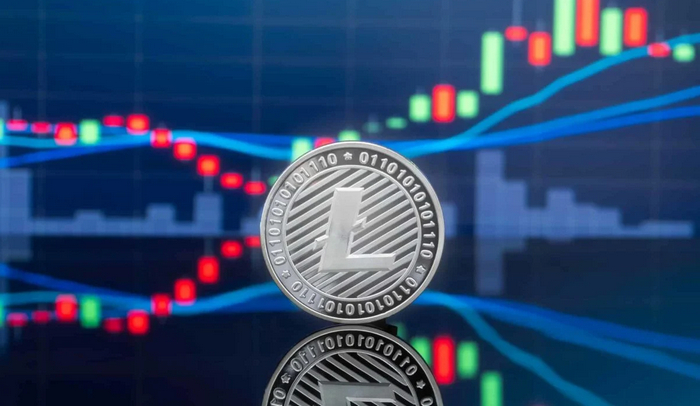
What is Litecoin?
- Definition: Litecoin is a cryptocurrency and blockchain platform that was launched in October 2011.
- Creation: It was created by former Google employee Charles Lee.
- Purpose: It is designed to provide faster transactions and lower fees than Bitcoin.
What can Litecoin do?
- Transactions: Litecoin enables the sending and receiving of funds globally with fast and secure transactions.
- Payments: It can be used as a payment method for goods and services at businesses that accept cryptocurrencies.
- Store of Value: Like Bitcoin, Litecoin can be held as a potential investment or hedge against inflation.
How to store Litecoin?
Software Wallets
Desktop Wallets: These are software installed on your computer that securely store your private keys and manage your Litecoin transactions.
- Examples: Litecoin Core, Electrum-LTC, Exodus
Mobile Wallets: These are apps for your smartphone that provide a convenient way to manage your Litecoin on the go.
- Examples: Litecoin Wallet, Trust Wallet, Atomic Wallet
Hardware Wallets
- Purpose: These are physical devices designed to securely store your private keys offline.
- Security: They are considered the most secure storage option for cryptocurrencies.
- Examples: Trezor, Ledger, SafePal
Other Storage:
Exchange Wallets: These are accounts on cryptocurrency exchanges where you can store and trade Litecoin.
- Note: It is not recommended to store large amounts of cryptocurrency on exchanges due to security risks.
Paper Wallets: These are physical documents that contain your public and private keys.
- Caution: They can be lost or damaged, so they should only be used as a backup option.
Disclaimer:info@kdj.com
The information provided is not trading advice. kdj.com does not assume any responsibility for any investments made based on the information provided in this article. Cryptocurrencies are highly volatile and it is highly recommended that you invest with caution after thorough research!
If you believe that the content used on this website infringes your copyright, please contact us immediately (info@kdj.com) and we will delete it promptly.
- Solana, Aptos, and Stable Tokens: Wyoming's Bold Move and the Future of Finance
- 2025-06-23 08:25:12
- Ruvi AI: The Next Binance Coin? A Token Rally to Watch
- 2025-06-23 08:25:12
- Ruvi AI vs. Dogecoin: Can AI Deliver Better ROI?
- 2025-06-23 08:45:12
- SHIB, WLD, BlockDAG: Navigating Crypto's Crossroads in 2024
- 2025-06-23 08:45:12
- Ruvi AI: Revolutionizing ROI Predictions in the Crypto Space
- 2025-06-23 09:05:12
- Ruvi AI: Is This the Token Poised for Bigger ETH Gains?
- 2025-06-23 09:05:12
Related knowledge

How to customize USDT TRC20 mining fees? Flexible adjustment tutorial
Jun 13,2025 at 01:42am
Understanding USDT TRC20 Mining FeesMining fees on the TRON (TRC20) network are essential for processing transactions. Unlike Bitcoin or Ethereum, where miners directly validate transactions, TRON uses a delegated proof-of-stake (DPoS) mechanism. However, users still need to pay bandwidth and energy fees, which are collectively referred to as 'mining fe...

USDT TRC20 transaction is stuck? Solution summary
Jun 14,2025 at 11:15pm
Understanding USDT TRC20 TransactionsWhen users mention that a USDT TRC20 transaction is stuck, they typically refer to a situation where the transfer of Tether (USDT) on the TRON blockchain has not been confirmed for an extended period. This issue may arise due to various reasons such as network congestion, insufficient transaction fees, or wallet-rela...

How to cancel USDT TRC20 unconfirmed transactions? Operation guide
Jun 13,2025 at 11:01pm
Understanding USDT TRC20 Unconfirmed TransactionsWhen dealing with USDT TRC20 transactions, it’s crucial to understand what an unconfirmed transaction means. An unconfirmed transaction is one that has been broadcasted to the blockchain network but hasn’t yet been included in a block. This typically occurs due to low transaction fees or network congestio...

How to check USDT TRC20 balance? Introduction to multiple query methods
Jun 21,2025 at 02:42am
Understanding USDT TRC20 and Its ImportanceUSDT (Tether) is one of the most widely used stablecoins in the cryptocurrency market. It exists on multiple blockchain networks, including TRC20, which operates on the Tron (TRX) network. Checking your USDT TRC20 balance accurately is crucial for users who hold or transact with this asset. Whether you're sendi...

What to do if USDT TRC20 transfers are congested? Speed up trading skills
Jun 13,2025 at 09:56am
Understanding USDT TRC20 Transfer CongestionWhen transferring USDT TRC20, users may occasionally experience delays or congestion. This typically occurs due to network overload on the TRON blockchain, which hosts the TRC20 version of Tether. Unlike the ERC20 variant (which runs on Ethereum), TRC20 transactions are generally faster and cheaper, but during...

The relationship between USDT TRC20 and TRON chain: technical background analysis
Jun 12,2025 at 01:28pm
What is USDT TRC20?USDT TRC20 refers to the Tether (USDT) token issued on the TRON blockchain using the TRC-20 standard. Unlike the more commonly known ERC-20 version of USDT (which runs on Ethereum), the TRC-20 variant leverages the TRON network's infrastructure for faster and cheaper transactions. The emergence of this version came as part of Tether’s...

How to customize USDT TRC20 mining fees? Flexible adjustment tutorial
Jun 13,2025 at 01:42am
Understanding USDT TRC20 Mining FeesMining fees on the TRON (TRC20) network are essential for processing transactions. Unlike Bitcoin or Ethereum, where miners directly validate transactions, TRON uses a delegated proof-of-stake (DPoS) mechanism. However, users still need to pay bandwidth and energy fees, which are collectively referred to as 'mining fe...

USDT TRC20 transaction is stuck? Solution summary
Jun 14,2025 at 11:15pm
Understanding USDT TRC20 TransactionsWhen users mention that a USDT TRC20 transaction is stuck, they typically refer to a situation where the transfer of Tether (USDT) on the TRON blockchain has not been confirmed for an extended period. This issue may arise due to various reasons such as network congestion, insufficient transaction fees, or wallet-rela...

How to cancel USDT TRC20 unconfirmed transactions? Operation guide
Jun 13,2025 at 11:01pm
Understanding USDT TRC20 Unconfirmed TransactionsWhen dealing with USDT TRC20 transactions, it’s crucial to understand what an unconfirmed transaction means. An unconfirmed transaction is one that has been broadcasted to the blockchain network but hasn’t yet been included in a block. This typically occurs due to low transaction fees or network congestio...

How to check USDT TRC20 balance? Introduction to multiple query methods
Jun 21,2025 at 02:42am
Understanding USDT TRC20 and Its ImportanceUSDT (Tether) is one of the most widely used stablecoins in the cryptocurrency market. It exists on multiple blockchain networks, including TRC20, which operates on the Tron (TRX) network. Checking your USDT TRC20 balance accurately is crucial for users who hold or transact with this asset. Whether you're sendi...

What to do if USDT TRC20 transfers are congested? Speed up trading skills
Jun 13,2025 at 09:56am
Understanding USDT TRC20 Transfer CongestionWhen transferring USDT TRC20, users may occasionally experience delays or congestion. This typically occurs due to network overload on the TRON blockchain, which hosts the TRC20 version of Tether. Unlike the ERC20 variant (which runs on Ethereum), TRC20 transactions are generally faster and cheaper, but during...

The relationship between USDT TRC20 and TRON chain: technical background analysis
Jun 12,2025 at 01:28pm
What is USDT TRC20?USDT TRC20 refers to the Tether (USDT) token issued on the TRON blockchain using the TRC-20 standard. Unlike the more commonly known ERC-20 version of USDT (which runs on Ethereum), the TRC-20 variant leverages the TRON network's infrastructure for faster and cheaper transactions. The emergence of this version came as part of Tether’s...
See all articles





















